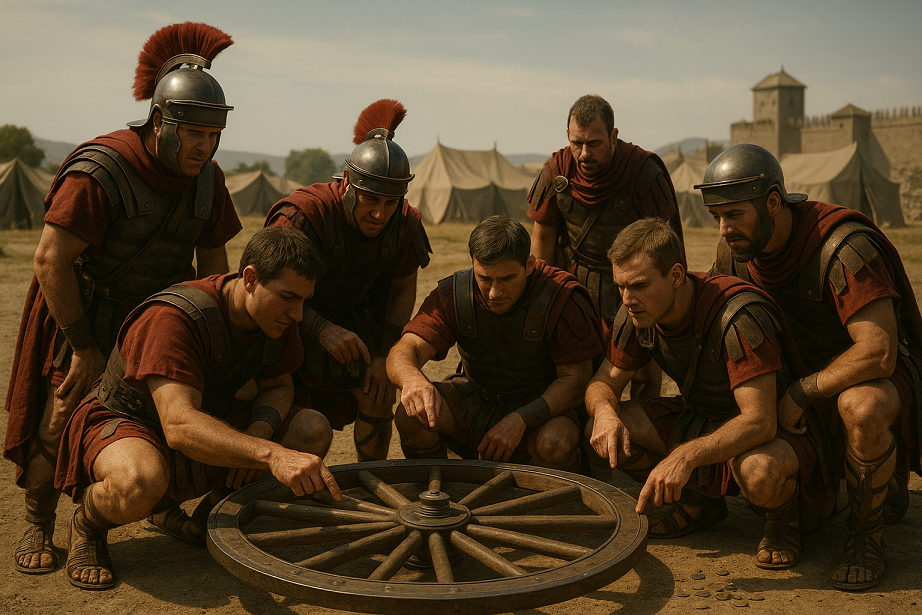Have you ever wondered where Roulette, the iconic game with the spinning wheel, actually comes from? Its roots delve deep into Roman antiquity, to a game known as Rota Fortunae – the Wheel of Fate or Wheel of Fortune. This simple yet ingenious game is considered the earliest direct ancestor of today’s casino Roulette and established the core principle we all know and love.
Rota Fortunae: The Roman Wheel of Fortune
Imagine Roman soldiers, needing to pass the time between battles or during long sieges. Creativity was key! It is believed that they used everyday objects like chariot wheels or their round shields to invent a game. They would spin these objects and bet on the outcome or the section where the wheel would come to a stop. This was their version of Rota Fortunae, the Wheel of Fortune, symbolically representing the whims of fate.
The fascination was the same as today: the tension of waiting, the pure randomness of the outcome, and the possibility of winning through a lucky prediction. It was a pure game of chance, where the gods or fate decided the outcome.
The Direct Ancestor of Roulette – The Casino Connection
The crucial point that makes Rota Fortunae the direct ancestor of modern Roulette is the underlying principle: betting on the random outcome of a spinning wheel. This is the DNA of Roulette. Whether it was a rough chariot wheel in the dusty Roman arena or a high-precision manufactured Roulette wheel in the glamorous casino of Monte Carlo – the core idea is identical.
With Rota Fortunae, the Romans established the fundamental mechanics of gambling, where a physical object is set in motion, and its final result determines the bet. This simple yet captivating structure laid the groundwork for the development of table games based on chance and probability.

From Battlefields to Gaming Tables
Over centuries, this primitive concept evolved. In the Middle Ages, there were various iterations of wheels of fortune, often associated with fairs and festivals. In the 17th and 18th centuries, primarily in France, the game was refined into what we know today as Roulette – the “little wheel.” It acquired the numbered slots, the ball, and the various betting options that made it one of the most popular casino games worldwide.
However, the spirit of Rota Fortunae – the desire to challenge fate with a spin and bet on the unexpected outcome of a revolving circle – persisted and remains the heart of Roulette to this day.
The Legacy of Rota Fortunae in the Modern Casino
When you stand at a Roulette table today and watch the ball fall into the spinning wheel, you are participating in a tradition thousands of years old. From the simple wheels of fortune of Roman soldiers to the digital Roulette tables of modern online casinos, the principle has stood the test of time. Rota Fortunae may be a name from antiquity, but its legacy lives on in every spin and every bet on the lucky wheel of fate that we know today as Roulette. It is a fascinating example of how a simple game from history could lay the foundation for a multi-billion dollar gambling industry.